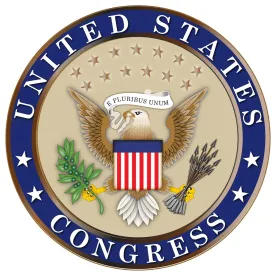Legislative Activity
House Agriculture Committee Hearing to Focus on Watershed Programs
On Wednesday, the House Agriculture Committee’s Subcommittee on Conservation and Forestry is scheduled to hold a hearing focused on small watershed infrastructure, specifically the Watershed Rehabilitation Program and the Watershed and Flood Prevention Operations (WFPO) Program. Both programs are administered by the United States Department of Agriculture’s Natural Resources Conservation Service, which partners with local watershed sponsors to fund projects relating to soil conservation; flood prevention, such as dam rehabilitation; water conservation, usage, and disposal; and surveys.
Rep. Frank Lucas (R-OK), Chairman of the Subcommittee, has a longstanding interest in watershed infrastructure, particularly in the rehabilitation of aging small upstream flood control measures. Rep. Lucas was the sponsor of the Small Watershed Rehabilitation Amendments of 2000, which included language to create the Watershed Rehabilitation Program. The Grain Standards and Warehouse Improvement Act of 2000 ultimately included Rep. Lucas’ legislative language to create the Watershed Rehabilitation Program, which was most recently amended by the 2014 Farm Bill.
The WFPO Program, often referred to as the PL-566 Small Watershed Program or simply PL-566, is a permanently authorized program with roots back to the Flood Control Act of 1944 and the Watershed Protection and Flood Prevention Act of 1954. The WFPO Program relies on annual discretionary funds and is facing significant backlog, as it has not received appropriations since Fiscal Year 2010. However, last month, President Trump signed the Fiscal Year 2017 omnibus appropriations legislation into law, which included $150 million for the WFPO Program.
Rep. Lucas is expected to highlight the importance of the programs and their role in not only protecting life and property, but also in preventing disaster expenses and creating jobs, especially for rural America. This week’s hearing will also allow the committee to consider the future of existing programs and to deliberate the effects of the six-year funding gap for the WFPO Program.




 />i
/>i

